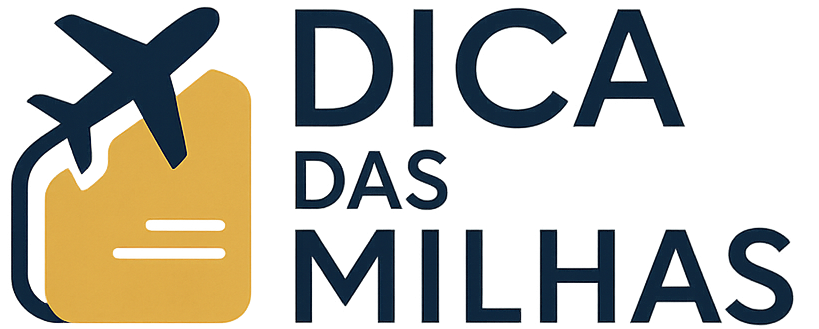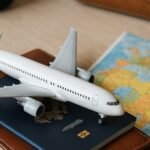Traveling long-term is an exciting lifestyle choice — filled with exploration, cultural discovery, and freedom. But for many digital nomads, remote workers, and location-independent professionals, it also means managing deadlines, Zoom calls, and deliverables from ever-changing environments.
Staying productive while traveling isn’t about rigid routines; it’s about building flexible, sustainable habits that allow you to balance work and adventure. Whether you’re freelancing from a beach in Thailand or managing a remote team from Lisbon, this guide will help you maintain focus, meet goals, and enjoy the journey.
The Challenges of Productivity on the Road
Before building a solution, you have to understand the challenges. Productivity while traveling long-term is impacted by:
- Time zone differences
- Unreliable internet
- Distractions from new places and activities
- Lack of routine and structured space
- Burnout from travel fatigue
- Loneliness or lack of collaboration
These obstacles can derail even the most motivated professionals. But with the right strategies, you can overcome them and thrive.
Design a Flexible, Yet Consistent Routine
You don’t need a 9-to-5 schedule, but you do need rhythm. Create a routine that works no matter where you are.
- Set consistent work blocks: Choose the same hours each day when you’ll work — for example, 8am–12pm.
- Use anchor habits: Start your day with routines that signal “work time,” like coffee, a walk, or journaling.
- Leave room for spontaneity: Build in “free” hours so you can say yes to unplanned adventures without guilt.
When your brain knows what to expect, it works more efficiently.
Choose Accommodation That Supports Productivity
Not all accommodations are created equal for remote work. Here’s what to look for:
- Strong and stable Wi-Fi (always test before booking)
- Comfortable seating and a table or desk
- Quiet environment
- Nearby cafes or co-working spaces
- Good lighting for video calls
Platforms like Airbnb now have “laptop-friendly” filters, and apps like Workfrom and Coworker help find remote-friendly spots.
Invest in Essential Tech Tools
Traveling long-term with the right gear can make or break your productivity. Here are must-have items:
- Lightweight laptop with long battery life
- Noise-canceling headphones
- Portable power bank
- Universal travel adapter
- Mobile hotspot or SIM card with data
- VPN for safe browsing on public Wi-Fi
You’ll also want apps that make your work portable:
- Notion, Trello, or Asana for organization
- Slack, Zoom, or Google Meet for communication
- Google Drive or Dropbox for cloud file storage
Set Clear Goals and Daily Priorities
Without a boss checking in or a physical office, it’s easy to let days slip by. Combat this with structured goal setting:
- Use weekly planning sessions to outline what you must accomplish
- Set daily 3-task limits: Pick the top 3 things that need to get done
- Track progress in a digital planner or journaling app
- Review accomplishments weekly and reset your focus
This builds momentum and prevents procrastination.
Master the Art of Deep Work in Unfamiliar Places
Travel exposes you to constant novelty — new food, languages, people. But all that stimulation can destroy focus. Here’s how to reclaim deep work:
- Use the Pomodoro technique: 25-minute sprints with 5-minute breaks
- Block distracting websites and apps using extensions like Freedom or Cold Turkey
- Work offline to reduce temptation
- Switch locations when focus drops: try a park, co-working space, or hotel lounge
Finding a go-to “flow state” spot in each city helps reinforce productivity quickly.
Balance Work With Travel Experiences
The whole point of long-term travel is to experience new places. Don’t let your to-do list rob you of that. Use strategic planning to balance work and adventure:
- Work during mornings, explore in afternoons
- Batch work for a few full days, then take days off
- Avoid overcommitting to client meetings when changing time zones
- Use transit time (flights, buses) for light tasks like emails or admin
Treat sightseeing and cultural experiences as equally important appointments on your calendar.
Manage Time Zones Like a Pro
If you’re dealing with clients, team members, or meetings across continents, time zones can get tricky fast.
- Use tools like World Time Buddy or Google Calendar to schedule meetings
- Set your devices to multiple time zones
- Communicate availability clearly with clients or employers
- Batch all calls in one time block to avoid scattering your day
Bonus tip: Schedule your “overlap hours” with home time zones to ensure responsiveness and professionalism.
Combat Loneliness With Virtual and Local Community
Working alone while abroad can get isolating. That loneliness impacts motivation. Here’s how to combat it:
- Join digital nomad Facebook groups or Slack communities
- Attend meetups, coworking events, and language exchanges
- Schedule regular virtual catch-ups with friends or mentors
- Volunteer locally or take short classes (cooking, dancing, etc.)
Having even one or two supportive people in your current city can completely shift your energy.
Prioritize Your Health to Boost Mental Clarity
Traveling for long periods can exhaust the body and mind, especially when combined with work. Prioritize wellness to stay sharp:
- Get quality sleep — use white noise, sleep masks, or apps like Sleep Cycle
- Stay hydrated, especially when flying often
- Exercise daily, even if it’s a 20-minute walk or yoga in your room
- Eat nutritious meals and avoid overloading on street food
- Take mental health days: unplug, journal, meditate, rest
Healthy habits fuel consistent focus.
Work Smarter, Not Just Harder
You don’t need to fill your day to be productive. Efficiency matters more than hours logged. Optimize your output with smart strategies:
- Use templates for repetitive tasks
- Automate email responses and social media posts
- Outsource low-value tasks like editing or scheduling
- Turn off notifications during focus time
- Use voice dictation to create content while walking or exploring
The goal is to create more freedom, not more stress.
Build Systems That Travel With You
Systems are what separate sustainable travelers from those who burn out. Build processes you can carry anywhere:
- Create a weekly workflow that adapts to new locations
- Use consistent naming for files and tasks
- Have backup plans for internet or tech failures
- Plan travel days in advance so they don’t interfere with work
- Use cloud-based everything so you’re never tied to one device
Systems let you focus on living, not problem-solving.
Real Stories: Productive Digital Nomads Share Their Routines
Ana (Content Writer from Brazil):
“I wake up early, write from 7am–11am, and then explore. It’s all about setting boundaries and treating your morning like sacred work time.”
Josh (Remote Project Manager from the UK):
“I only schedule meetings two days a week. The rest is for deep work and enjoying wherever I am. Travel keeps me inspired, and that boosts my performance.”
Lena (Freelance Designer from Germany):
“I track my hours with Toggl and send clients updates weekly. That keeps me accountable and professional — even if I’m working from a hammock.”
Final Thought: Productivity Is Freedom in Disguise
Staying productive while traveling long-term isn’t about forcing structure onto a free lifestyle — it’s about designing a rhythm that supports both your career and your curiosity.
With intentional routines, smart tech tools, and flexible systems, you can deliver your best work from anywhere in the world — without sacrificing the experiences that make travel so rewarding.
Your journey isn’t just about destinations. It’s also about showing yourself what you’re capable of, wherever you are.
Elaine A. da Silva is a Brazilian travel and finance enthusiast, best known as the creator of the blog Dica das Milhas. With a strong background in personal finance and a passion for exploring smart travel strategies, she specializes in simplifying the world of airline miles and travel rewards for everyday people. Through her blog, Elaine shares practical tips, insider knowledge, and step-by-step guides to help readers save money and travel more efficiently using loyalty programs and credit card points.







